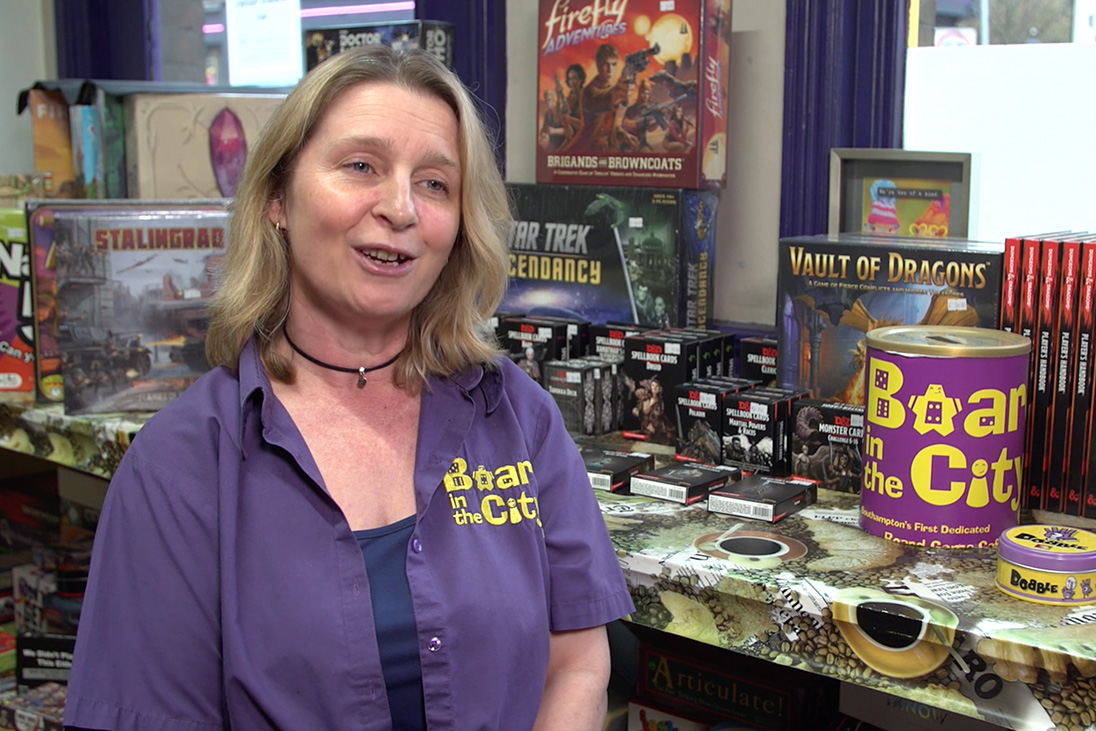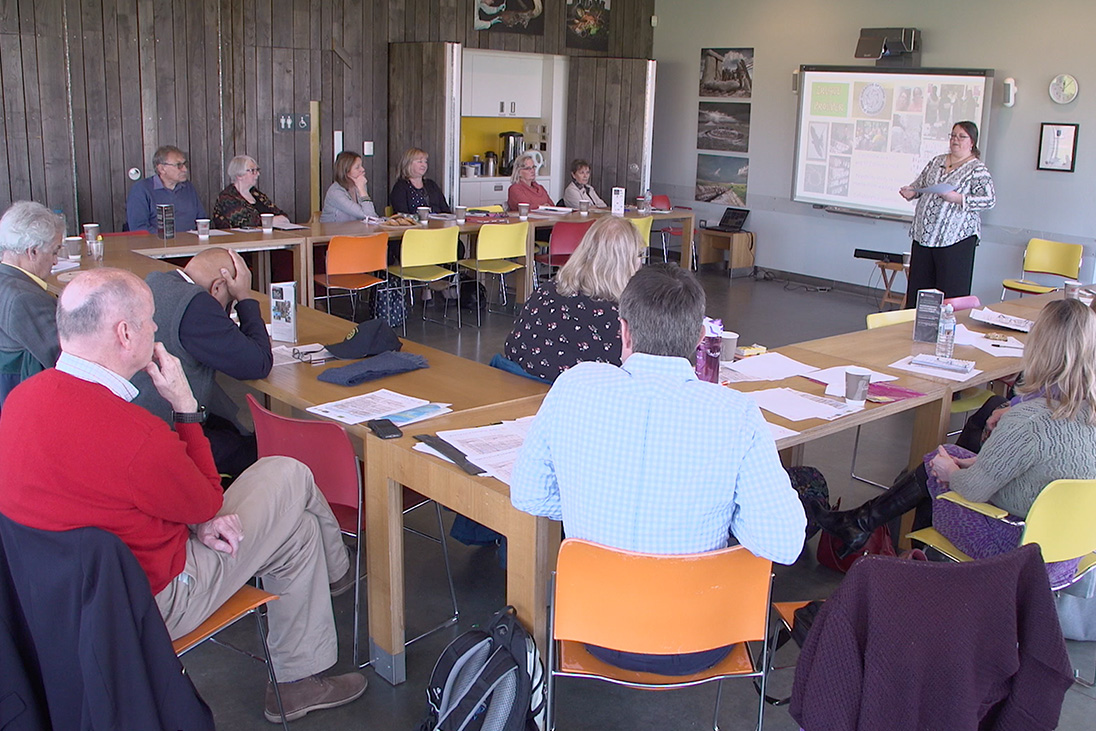Janice Mason, Past President of Rotary Social Innovation, based in Hampshire, explains how they are attracting a new breed of people to the organisation.
What is Rotary Social Innovation?
We don’t know, it is innovating and changing, it is developing as we go. It is exciting, responding to community needs, responding to members’ ideas and how they want to develop it. It’s fluid, flexible and it makes Rotary exciting to promote.
How did the club get started?
In the normal painful, agonising way of club formation, just like childbirth, we were encouraged by Rotary 2. Despite the status quo brigade, Rotary Social Innovation SEH (South East Hampshire, as we had to have a geographical reference in the title) was born on March 3rd, 2018.
We do not refer to ourselves as a ‘club’, if any collective title needs to be used we are a ‘group’ or ‘network’. Busy people do not have time to join clubs, but they like being a part of a group or network.
My husband Tim and I had previously chartered an E-Club, but we moved to a new area just as there were changes to the rules about e-membership, so we joined a traditional club whose average age was above the national average of 74.
They were interested in change and saw the need for new members, so we introduced Associate and E-membership to achieve this. To cut a long story short, the traditional members were unable to keep up with the speed of change, the concept of E-membership or the idea that the new members did not want to attend meetings or to non-specifically fundraise.
The new members wanted to work on projects and they wanted a new model.
We looked at the different elements which were being seen as important:
- New members from new business start-ups and Social Enterprises wanted business networking;
- Diversity and equality were key factors to encourage a wide range of members;
- Using modern technology and social media was a must;
- Connecting with the community and building sustainable communities was essential.
We looked for what words would describe these ingredients and we came up with Rotary Social Innovation.
This was all taking place in August. By January, we had around 50 associate members all excited by this new concept, of whom 20 agreed to be founder members of the new group, which chartered in March.
You’ve tried conventional Rotary, E-Clubs and now this – how different are the models and which one works best?
This new group is a mixture of all types.
It is going back to basics and stripping away the traditions that have grown over the years:
- Back to Paul Harris’ business networking and rotating meetings;
- Back to friendship through service;
- Back to the idea of being a humanitarian service organisation, including locally, not purely fund-raising;
- Focus on the four objectives and ethical practice;
- Less emphasis on meetings and more focus on technology to talk to each other.
It is reigniting Rotary for busy people, being exciting for families to belong to and being flexible to enable everyone to be involved in a way that suits them.
No model is best, every way to access Rotary needs to be embraced.
How easy was it to attract members and where are they drawn from?
We have attracted members by promoting the idea that we are 21st century Rotary.
We’re telling the story of Rotary in an exciting way which people can relate to, Paul Harris’s story, how one idea from one person can be developed and grown into a bigger idea.
This leads on to telling the story of eradicating polio, and how much has been achieved by working together, in partnership with other organisations.


Hayley Binstead, a member of Rotary Social Innovation, founded Board in the City in one of the most deprived areas of Southampton in response to the lack of safe spaces in the city.
Contacts have been made in the main via social media, particularly Twitter, and they have come from all walks of life. Relationships are developed and then we have arranged to meet up for coffee. Meeting for coffee and cake has played a key role!
We have used associate membership as a hook, where they can try before they buy, so what is there to lose? At the same time, we also tell them that joining Rotary costs less than a cup of coffee a week.
We do not refer to ourselves as a ‘club’, if any collective title needs to be used we are a ‘group’ or ‘network’.”
We offer a menu of opportunities for membership, with much emphasis on family membership involving the whole family in all we do. We even have a canine member – a hearing working dog! We are about to explore how best to engage with young professionals through membership based on Rotaract.
We also engage people directly into our various projects, rather than just signing them up to try Rotary as a general concept.
How easy is it?
Very easy, as people have been excited about Rotary and the added value it gives them.
What do you hope the club can achieve?
We want to help Rotary grow and think of how it sells itself as an exciting way of helping the community. We want to show how Rotary clubs can collaborate with other organisations, not just as a fund-raising organisation, but to be a catalyst to help find solutions to meet community needs.
We want to help Rotary embrace diversity, equality and inclusion. To consider how they do things to enable their membership to mirror their community.
We are helping to build awareness of social enterprise and would like to show Rotary clubs how they can be part of the buying and supply chain.


Rotary Social Innovation’s ‘Unpacking Social Enterprise’ days include round table discussions and learning exercises to help educate existing social entrepreneurs and the community as a whole.
We promote well-being, in all its forms and we want Rotary to be part of building caring, cohesive and sustainable communities.
We run E-Campaigns, encouraging online collaboration to spread community messages, such as supporting the Suzy Lamplugh Stalking campaign last year and this April.
The people we are attracting are passionate about the community and many are proactive in finding solutions to situations they themselves have overcome.
With our flexibility we will be in a position to respond where needed.
The diversity of our group means there are many different ways to approaching challenges and innovative ideas are emerging from the collaboration of our members.
What have been the highlights so far?
It’s exciting meeting people who want to join and the number of people attracted to it. When we have meetings they are buzzing and members leave energised.
Our Unpacking Social Enterprise events have proved popular and have led to a National focus working in partnership with Rotary Great Britain & Ireland and the School of Social Entrepreneurs.
We are helping to develop a number of dementia-friendly communities and working with Dementia Friendly Hampshire across the region.
We are developing Creative Innovation, starting with some inclusive drama, which focuses on community issues both in the plays themselves as well as the audiences who can access the performances.
We are supporting our members’ own enterprises and fundraising activities, working directly with charities to raise funds, not just donating.
In recognition of the end of World War One, a number of our members jumped from a plane, skydiving with a total of 100 people, to raise funds for Alabaré’s work with homeless and vulnerable veterans.
There is also support between members for business needs and advice.
With Eve Conway we have made two films. One for Rotary 2 about Rotary Social Innovation and another about Social Enterprise and how they can help build sustainable communities.
Do you think there will be other clubs springing up on a similar basis?
Without a doubt. We are working on some hubs in South Wiltshire and East Hampshire. Working in partnership with other clubs we are developing hubs in other areas.
Our ethos is about collaborative working, we’re very happy to chat with anyone to see where it leads.
There is still a lot to do. Our members are still exploring Rotary. We are evolving and want to be constantly innovative.


























































